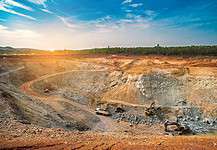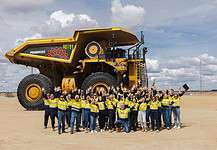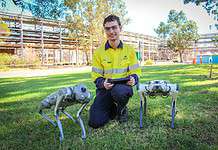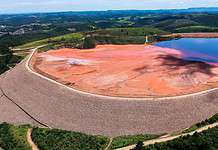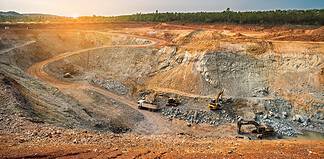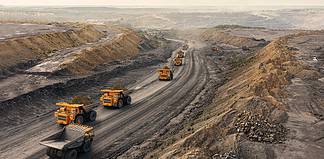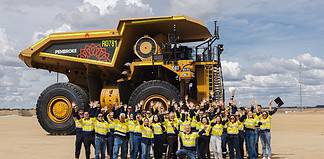IN a year when many gold producers experienced the negative effects of an unstable gold price, West Africa-focussed Perseus Mining doubled its total revenue for the financial year.
The company’s total revenue for the period ending 30 June was $293.7 million, up from $145.7 million for the previous year.
“Our financial performance in financial year 2013 was very solid, especially taking into account the recent volatility in gold price and technical challenges that needed to be overcome during the year at our flagship operation, the Edikan gold mine in Ghana,” Perseus managing director Jeff Quartermaine said.
Despite this, the company experienced a drop in net profit after tax, down from $52.5 million in 2012 to $41.4 million.
Perseus stated that the figures represented a decline in operating performance relative to the previous year and lower gold prices realised due to the decline of the gold market, as well as higher operating expenses due to maintenance, security and salary increases, and a number of write downs on investments and exploration.
Production at the Edikan mine increased by 52 per cent during the year to 208,444oz, at a cost of US$1150 per ounce.
The mine is on the Ayanfuri and Nanankaw mining leases which – together with the adjoining exploration license areas of Grumesa, Kwatechi, Dunkwa, Nsuaem and Nkotumso, also held by Perseus – cover a total area of about 650 square kilometres.
More than 3 billion cubic metres of ore and waste was mined during the June quarter, nearly 16 per cent less than in the March period, including 227,787t of oxide ore grading 0.8 grams per tonne of gold and more than 1.4 million tonnes of transition and primary ore at 1.2g/t gold.
Perseus also advanced preparations for its second gold project, Sissingué in Côte d’Ivoire, during the financial year, with the granting of an Exploitation Permit for the development of the Sissingué deposit.
Discussions with the Ivorian Government on applicable fiscal terms and stability undertakings progressed positively, with negotiation of a Mining Convention consistent with the proposed new Mining Code in Côte d’Ivoire underway.
The Sissingué gold project plant design was completed, and 100 per cent of the semi-autogenous grinding (SAG) mill supply contract value had been invoiced and paid by the end of the period, with the majority of the SAG mill’s components completed and in storage.
“[However,] the recent fall in the price of gold towards the end of the year has reduced the amount of free cash forecast to be generated at [Edikan], and also increased the risk associated with servicing any debt drawn down in the short to medium term (assuming that the company was prepared to draw down debt in the current economic climate),” Perseus stated.
As a result, the company decided not to commit to the development of Sissingué until it was “confident of its ability to finance the mine development and generate an acceptable rate of return on its investment”.
The decision would be reviewed in the coming financial year.
Advertisement


